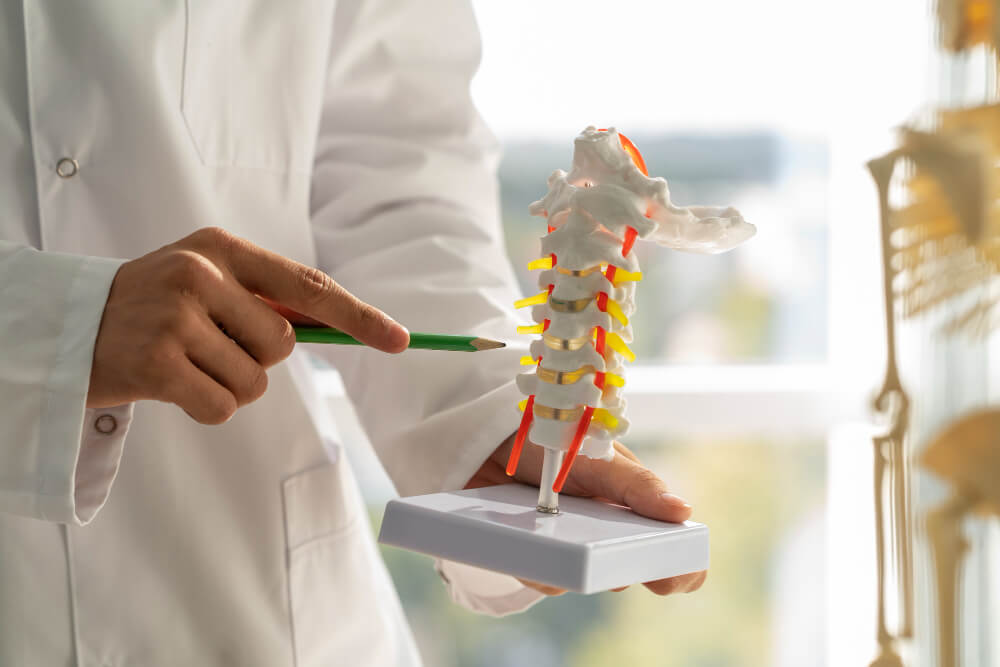Spinal Fractures: Your Guide to Treatment, Care, and Recovery
Spinal fractures are more common than many realize and can have serious, long-term effects if not treated properly. Whether caused by accidents, falls, sports injuries, or health conditions like osteoporosis, spinal fractures need prompt medical attention. At SCC Plano, we’re here to guide you through understanding, treating, and recovering from spinal fractures.
What Are Spinal Fractures?

The spine is made up of 33 vertebrae that protect your spinal cord and give structure to your body. A fracture in any of these bones can lead to reduced mobility and other health risks. Spinal fractures can vary from minor cracks to severe breaks that impact the spinal cord.
Common types include:
- Vertebral Compression Fractures: Often caused by osteoporosis, where the vertebra collapses under pressure.
- Burst Fractures: A violent injury that causes vertebrae to shatter, risking spinal cord injury.
- Dislocation Fractures: Vertebrae are both broken and displaced, making the spine unstable.
- Transverse and Spinous Process Fractures: Small fractures to the bony projections of the spine.
Causes of Spinal Fractures
Spinal fractures can occur due to:
- Trauma: Car accidents, falls, or sports injuries.
- Osteoporosis: Weakens bones, making fractures more likely from minor movements.
- Cancer: Tumors can erode the bones in the spine.
- Infections: Conditions like osteomyelitis weaken the vertebrae.
Signs and Symptoms
The symptoms of a spinal fracture depend on the location and severity but often include:
- Sudden and severe back pain
- Muscle spasms
- Numbness or weakness in arms or legs
- Trouble walking or standing
- In extreme cases, loss of bladder or bowel control
If you experience these symptoms, especially after trauma or a fall, seek medical help immediately.
Diagnosis
A spinal fracture diagnosis typically involves:
- Physical Exam: Checking mobility, reflexes, and neurological health.
- Imaging: X-rays, CT scans, and MRIs show the extent of the fracture and any spinal cord pressure.
- Neurological Tests: Ensure there’s no nerve damage.
Early diagnosis leads to better outcomes and faster recovery.
Treatment Options
Non-Surgical Treatments
Mild fractures can often heal with rest, back bracing, and pain management. Physical therapy is crucial for regaining strength and flexibility without risking re-injury.
Surgical Treatments
For more serious fractures, surgery may be required. Common procedures include:
- Spinal Fusion: Joins two or more vertebrae for added stability.
- Vertebroplasty and Kyphoplasty: Minimally invasive procedures where bone cement is injected to stabilize the spine.
Recovery and Rehabilitation
Healing from a spinal fracture involves more than just fixing the bone. Rehabilitation is key to regaining mobility and preventing future injury. This includes:
- Physical Therapy: Tailored exercises to rebuild strength and stability.
- Pain Management: Ongoing treatment strategies to minimize discomfort.
- Lifestyle Adjustments: Learning how to move and sit properly to protect your spine.
Prevention Tips
You can lower your risk of spinal fractures by:
- Maintaining a healthy diet rich in calcium and vitamin D
- Exercising regularly, especially weight-bearing activities
- Preventing falls at home with safety adjustments
- Using proper gear for sports and high-risk activities
When to Seek Help
Persistent back pain, especially after trauma, should never be ignored. Early evaluation by a spine specialist at SCC Plano ensures you get the right diagnosis and the best treatment options.
Contact SCC Plano Today
We specialize in personalized spinal fracture care to help you recover fully and safely.
📞 Call: (972) 633-8747 | (972) 848-0873
🌐 Learn more: Spinal Fracture Treatment Near Plano, TX